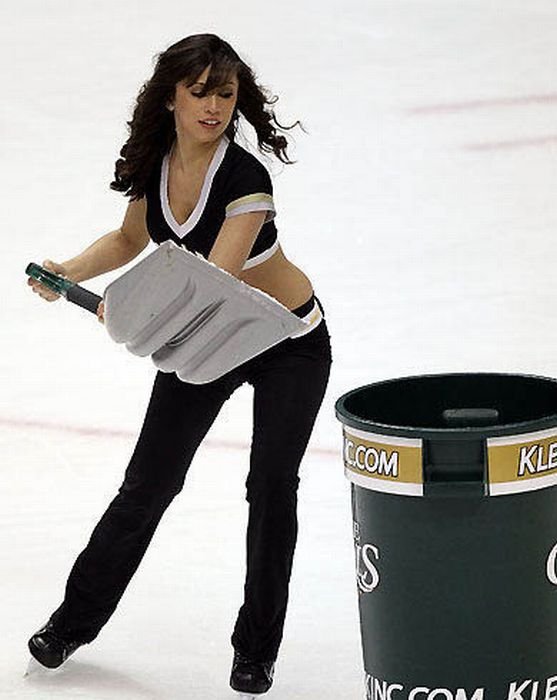|
|
NHL Support Girls
|
With no new agreement in hand when the existing contract expired on September 15, 2004, league commissioner Gary Bettman announced a lockout of the players union and cessation of operations by the NHL head office. The lockout shut down the league for 310 days, the longest in sports history; the NHL was the first professional sports league to lose an entire season. The league vowed to install what it dubbed "cost certainty" for its teams, but the NHL Players Association countered that the move was little more than a euphemism for a salary cap, which the union initially said it would not accept. A new collective bargaining agreement was ratified in July 2005 with a term of six years with an option of extending the collective bargaining agreement for an additional year at the end of the term, allowing the NHL to resume as of the 2005–06 season.
On October 5, 2005, the first post-lockout NHL season took to the ice with 15 games, and consequently all 30 teams. Of those 15 games, 11 were in front of sell-out crowds. The NHL received record attendance in the 2005–06 season. 20,854,169 fans, an average of 16,955 per game, was a 1.2% increase over the previous mark held in the 2001–02 season. Also, the Montreal Canadiens, Calgary Flames, Colorado Avalanche, Minnesota Wild, Tampa Bay Lightning, and the Vancouver Canucks sold out all of their home games; all six Canadian teams played to 98% capacity or better at every home game. 24 of the 30 clubs finished even or ahead of their 2003–04 mark. The Pittsburgh Penguins had the highest increase at 33%, mainly because of 18-year-old first overall draft pick Sidney Crosby. After losing a season to a labour dispute in 2005, attendance figures for League teams have returned to solid ground; the League's TV audience was slower to rebound because of ESPN's decision to drop the sport from its schedule. The NHL's post-lockout agreement with NBC gave the league a share of revenue from each game's advertising sales, rather than the usual lump sum paid up front for game rights. The NHL is estimated to earn annual revenue of around $2.27 billion.
The debut of the Winter Classic, an outdoor regular season NHL game held on New Year's Day 2008, was a major success for the league. The game has since become a permanent staple of the NHL schedule. This, along with the transition to a national "Game of the Week" and an annual "Hockey Day in America" regional coverage, has helped increase the NHL's regular season television viewership, which is now carried by NBC and Versus. These improvements led NBC and Versus to sign a ten-year broadcast deal paying $200 million per year for both cable and broadcast rights; the deal will lead to further increases in television coverage on both outlets.
|
|









